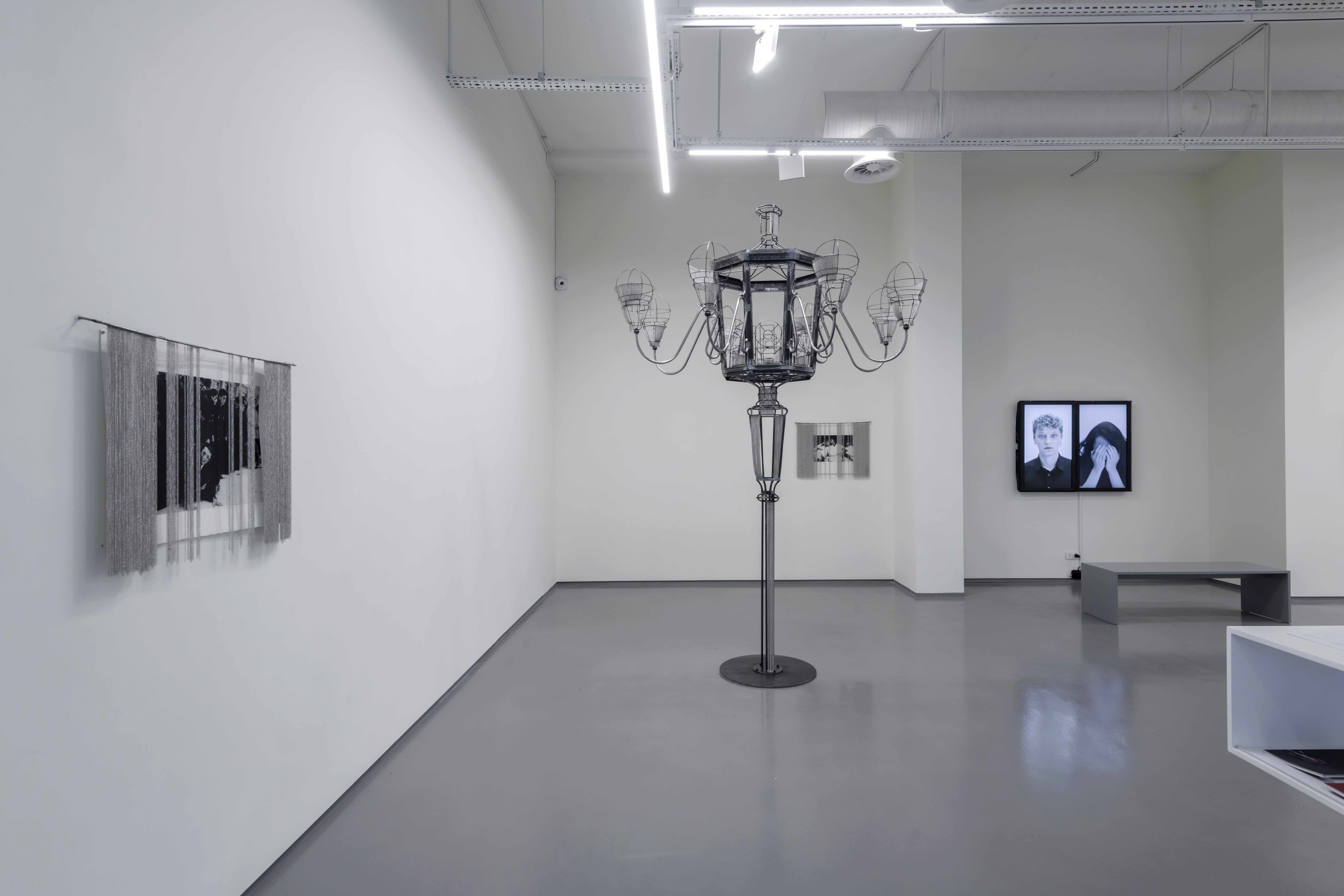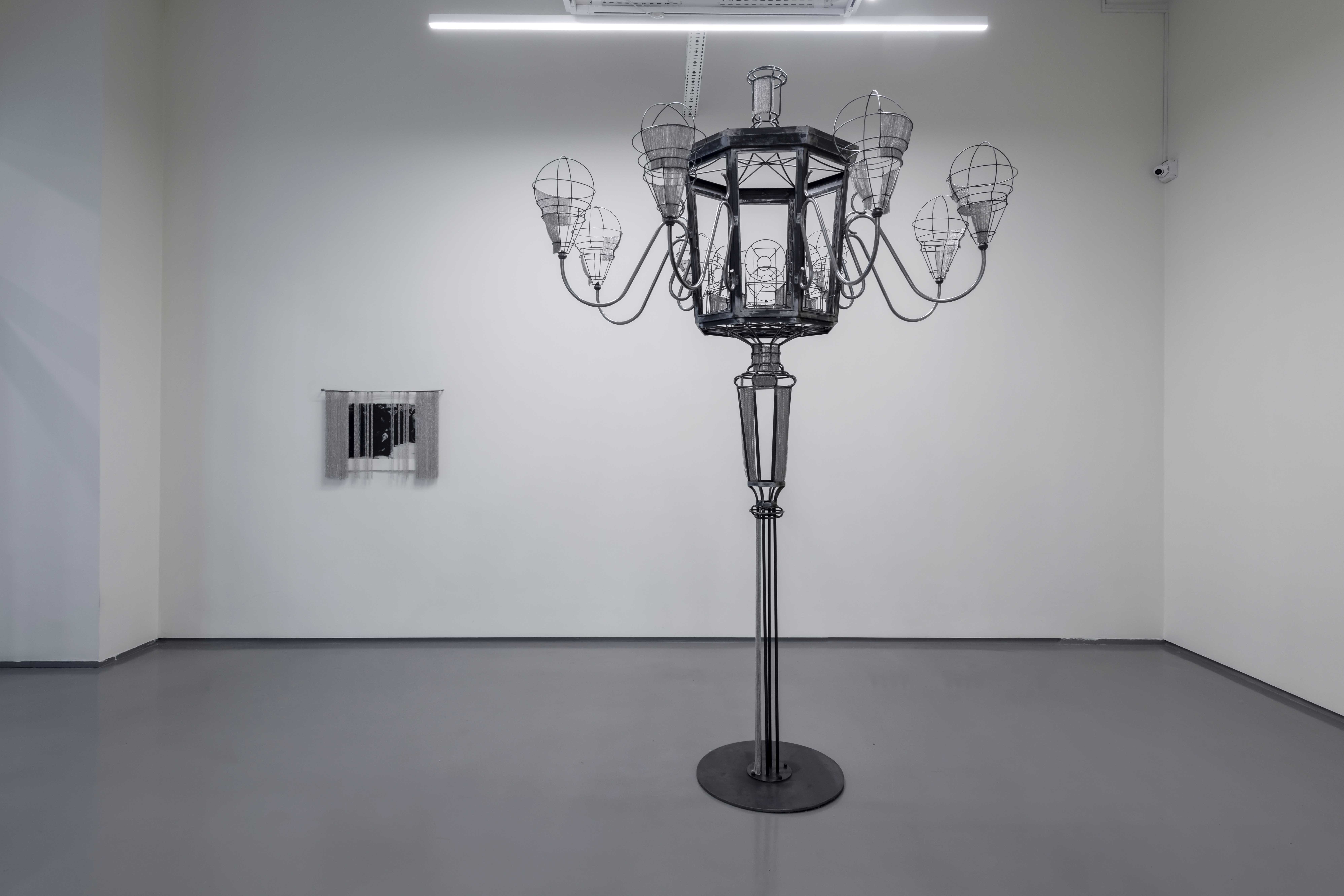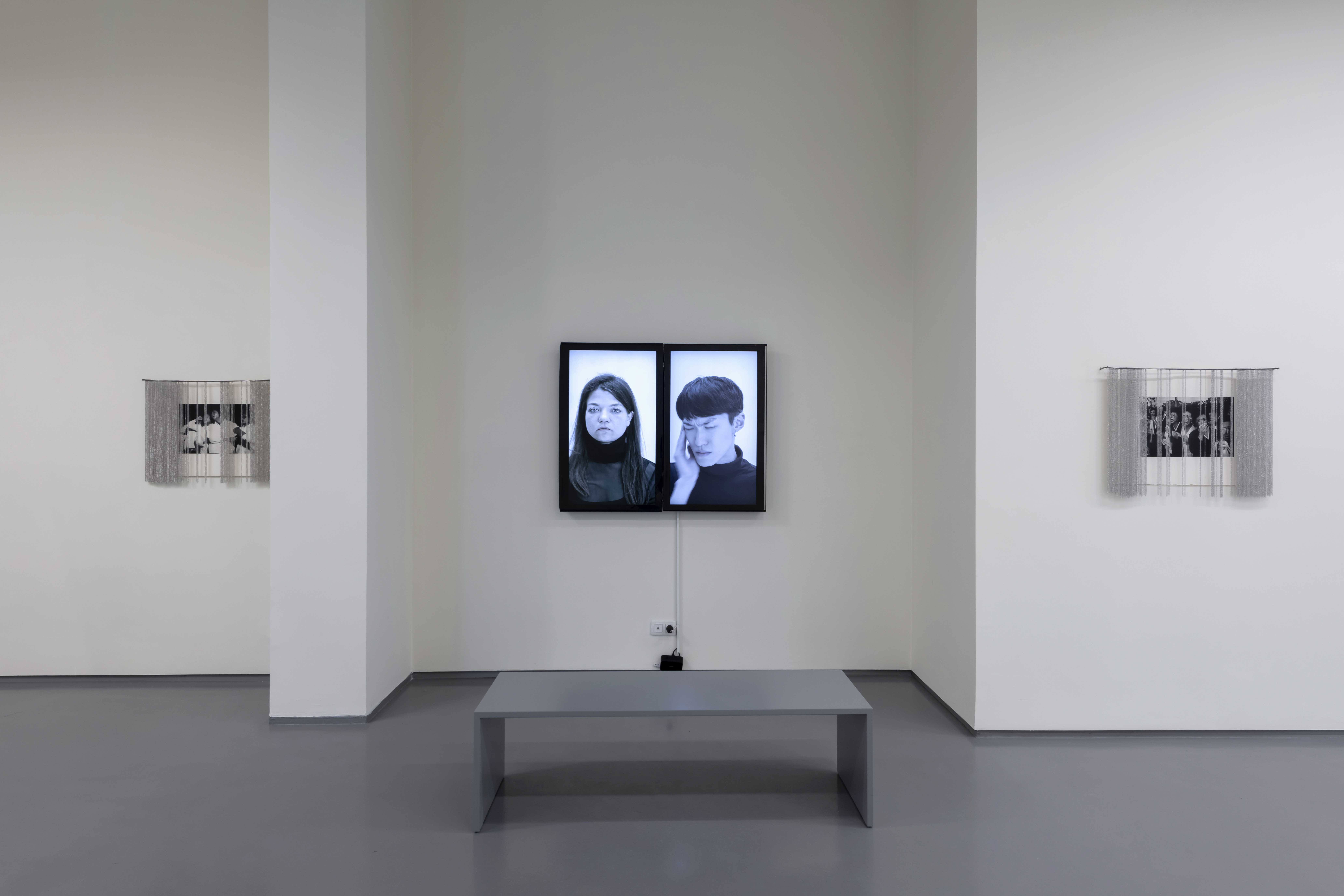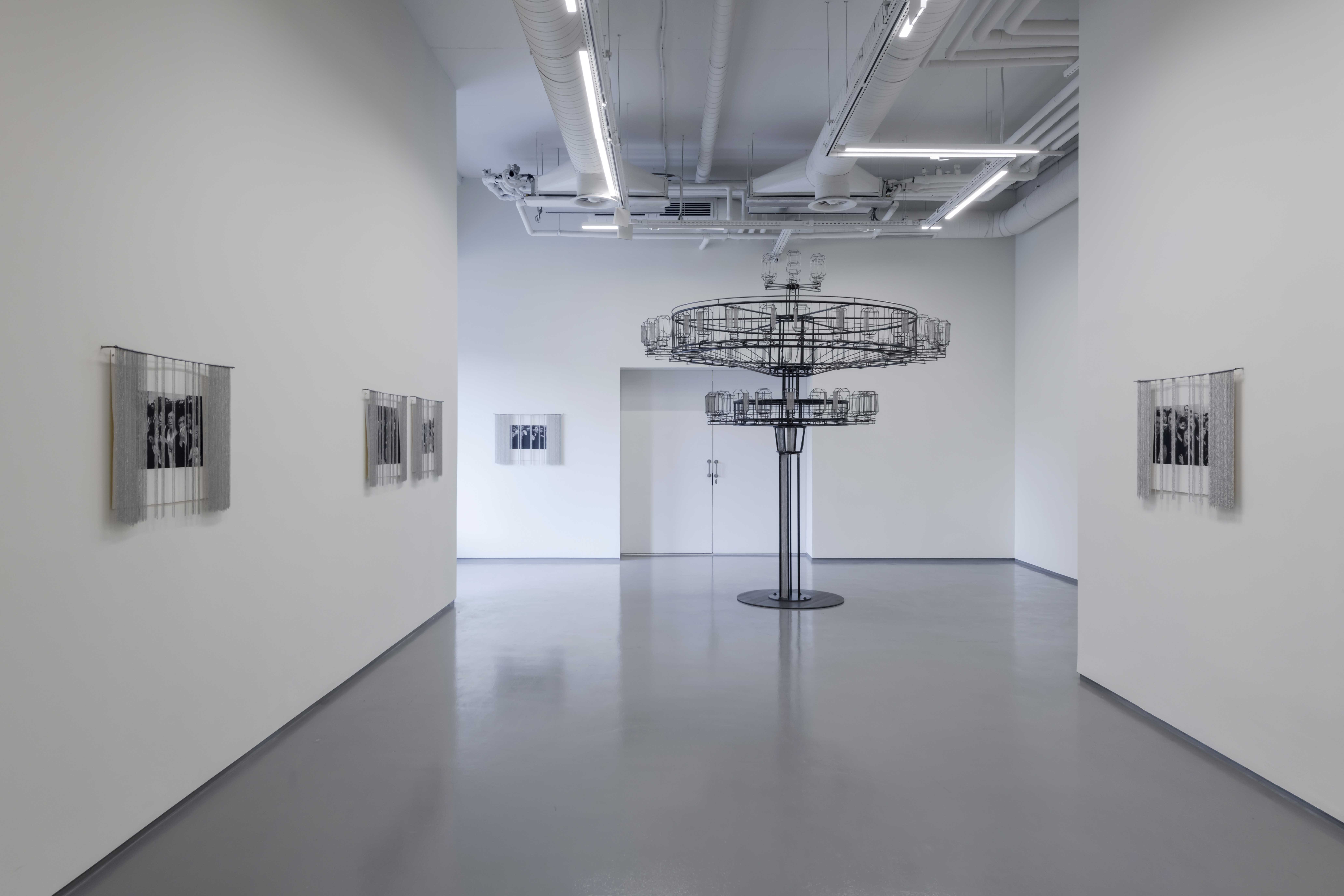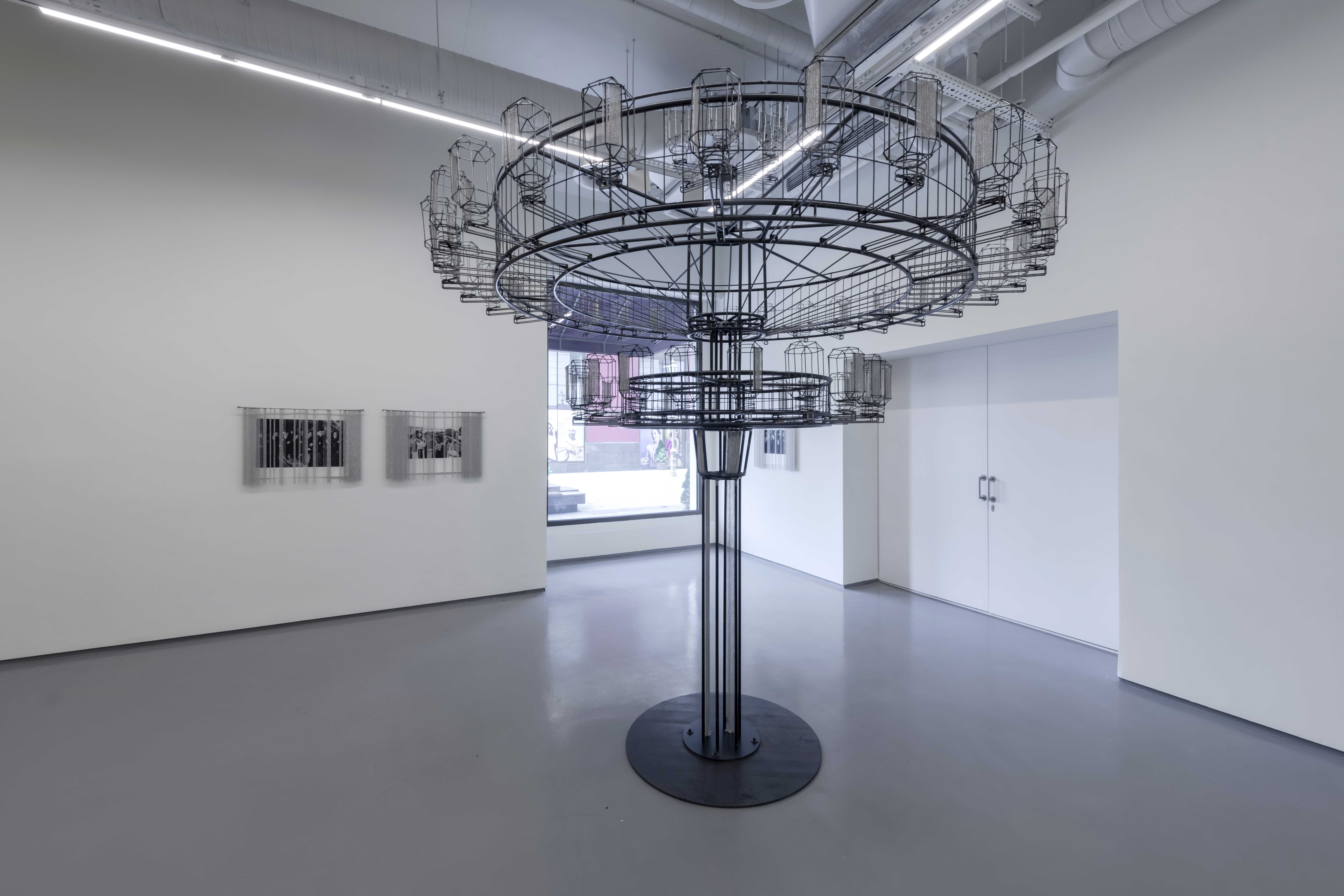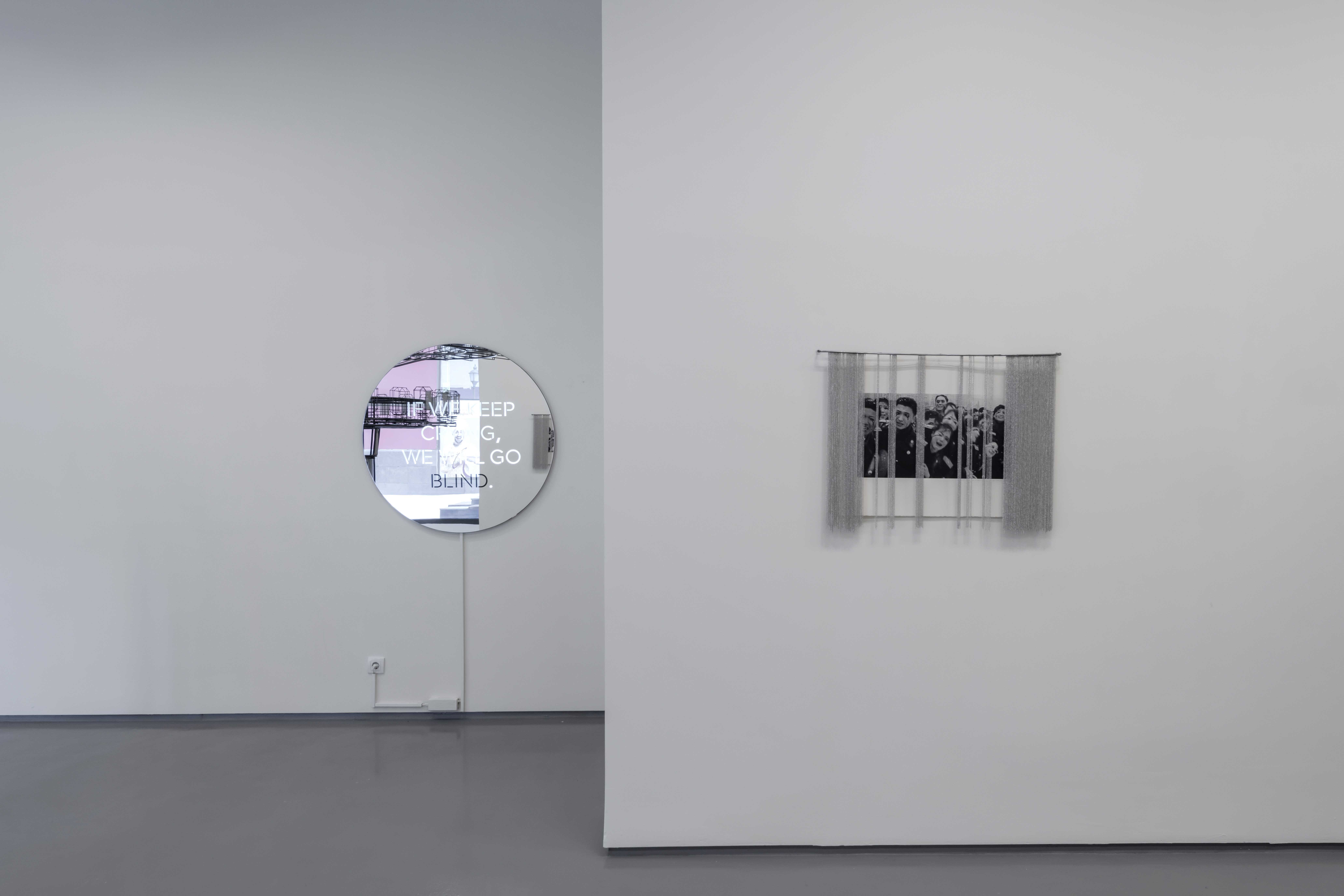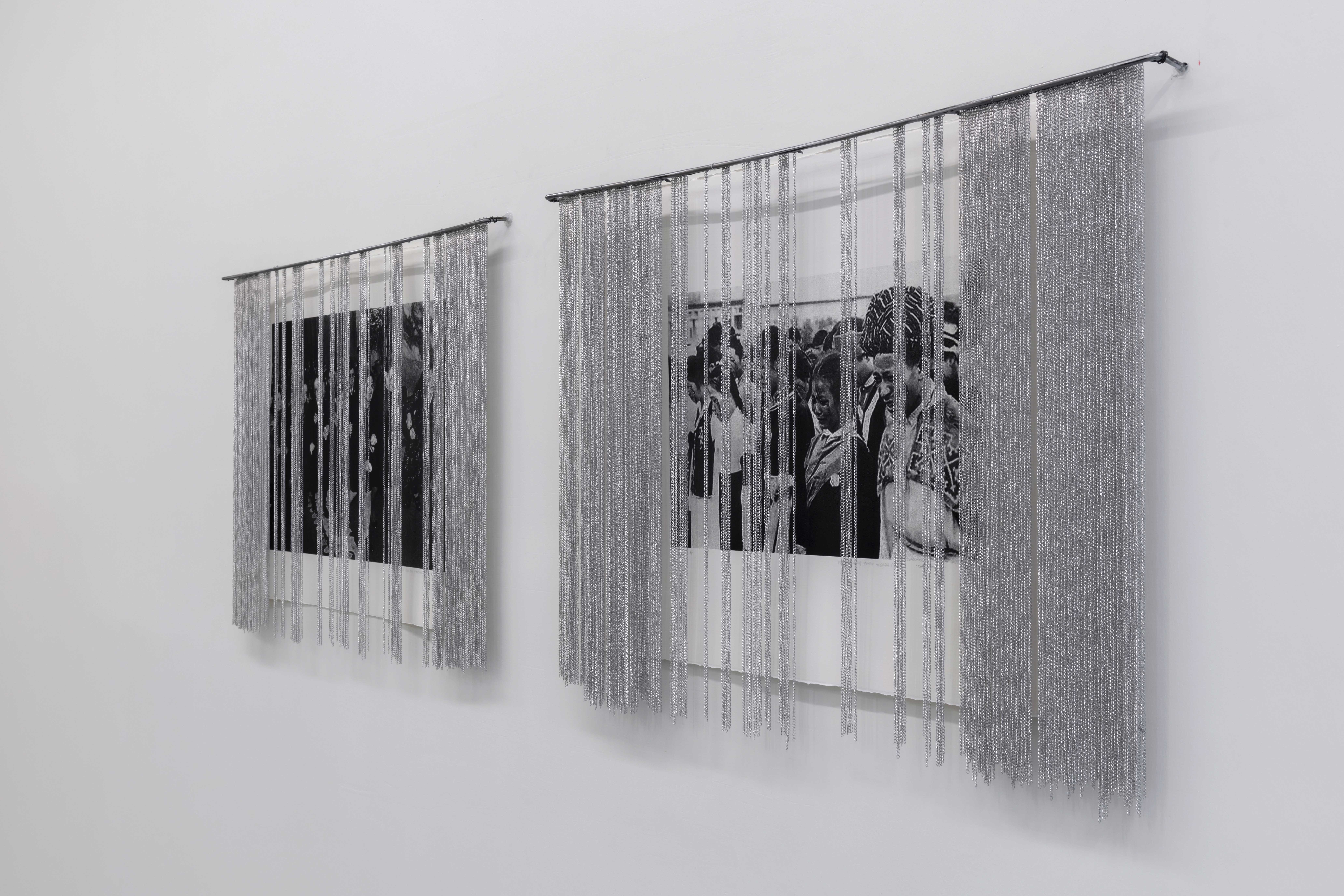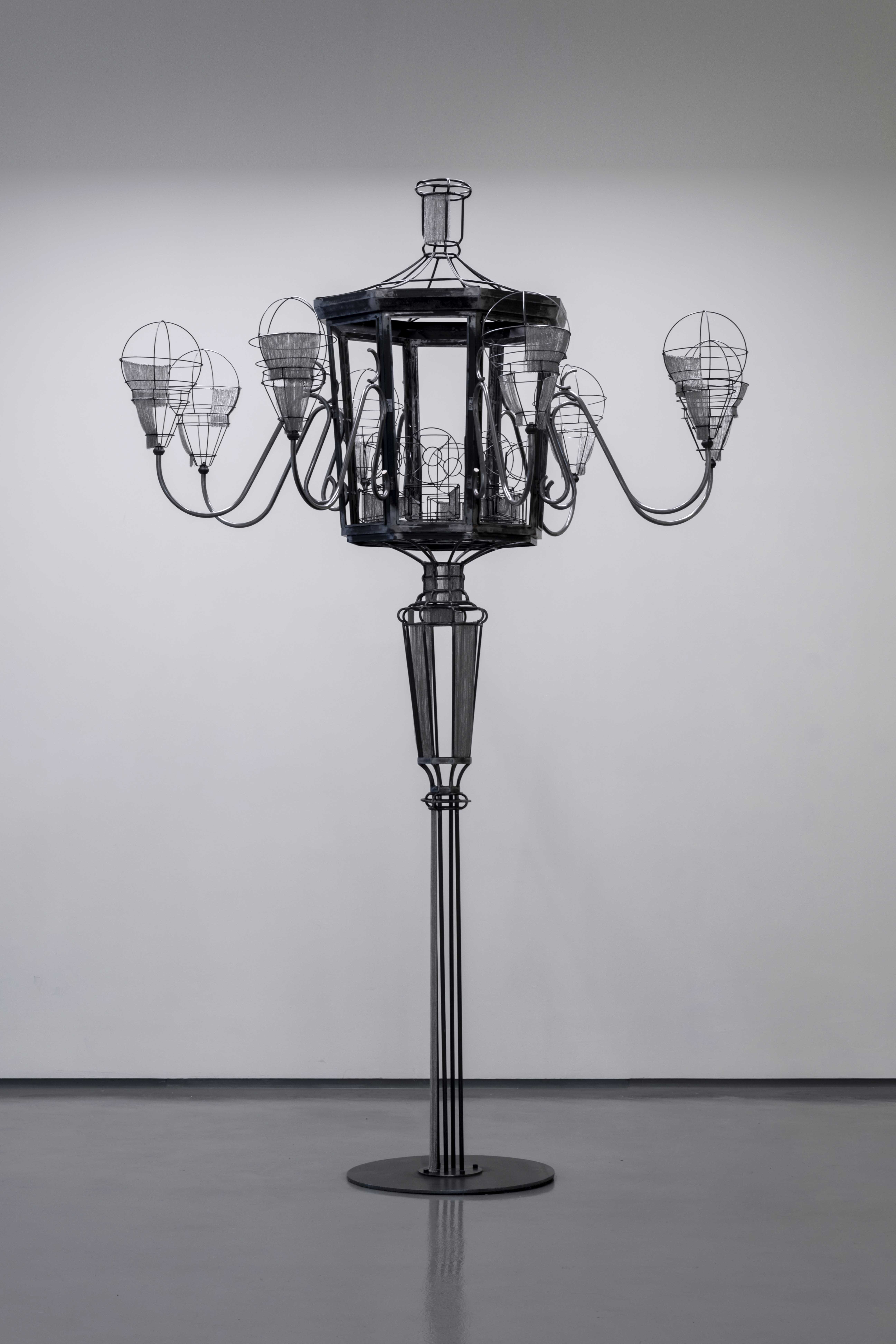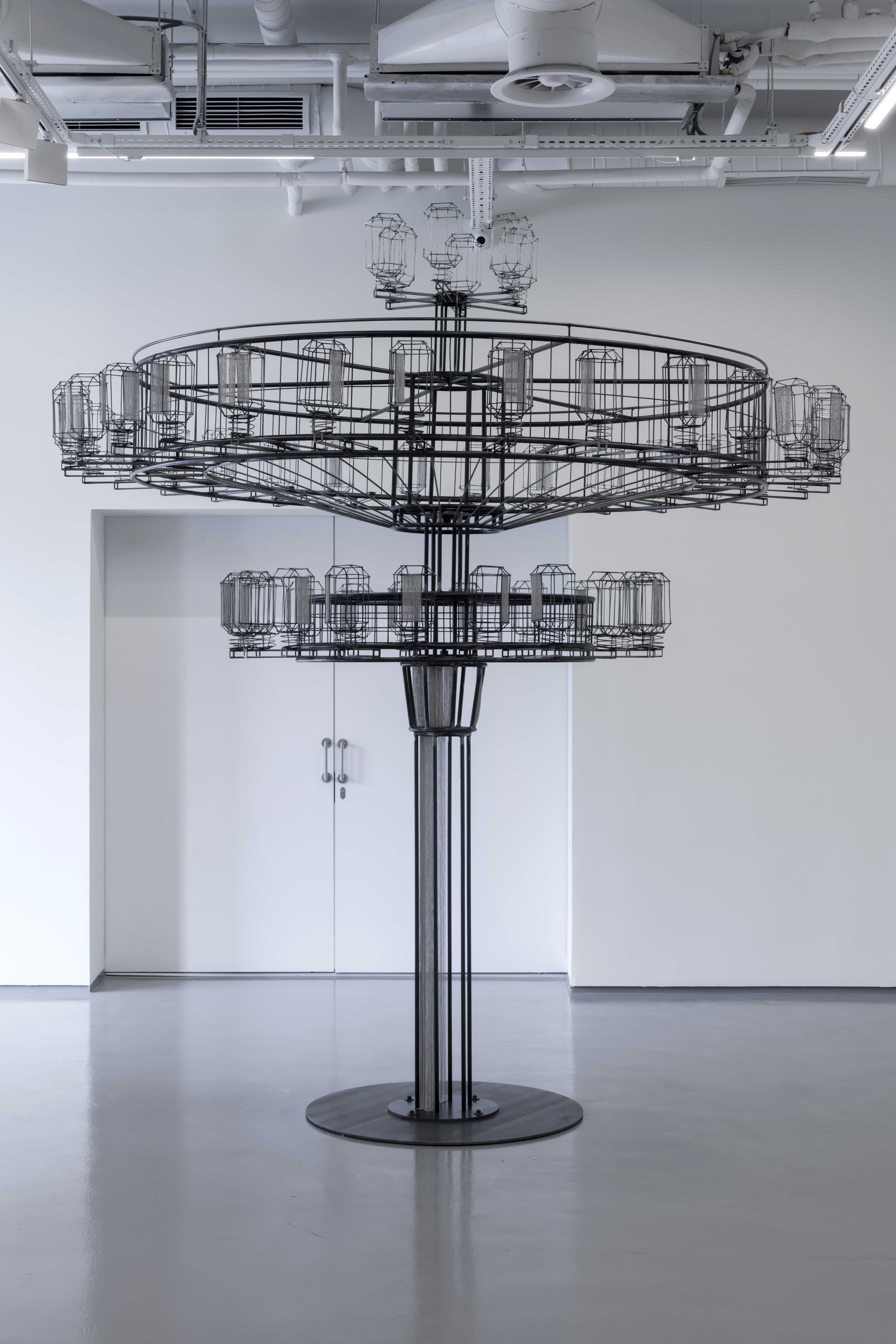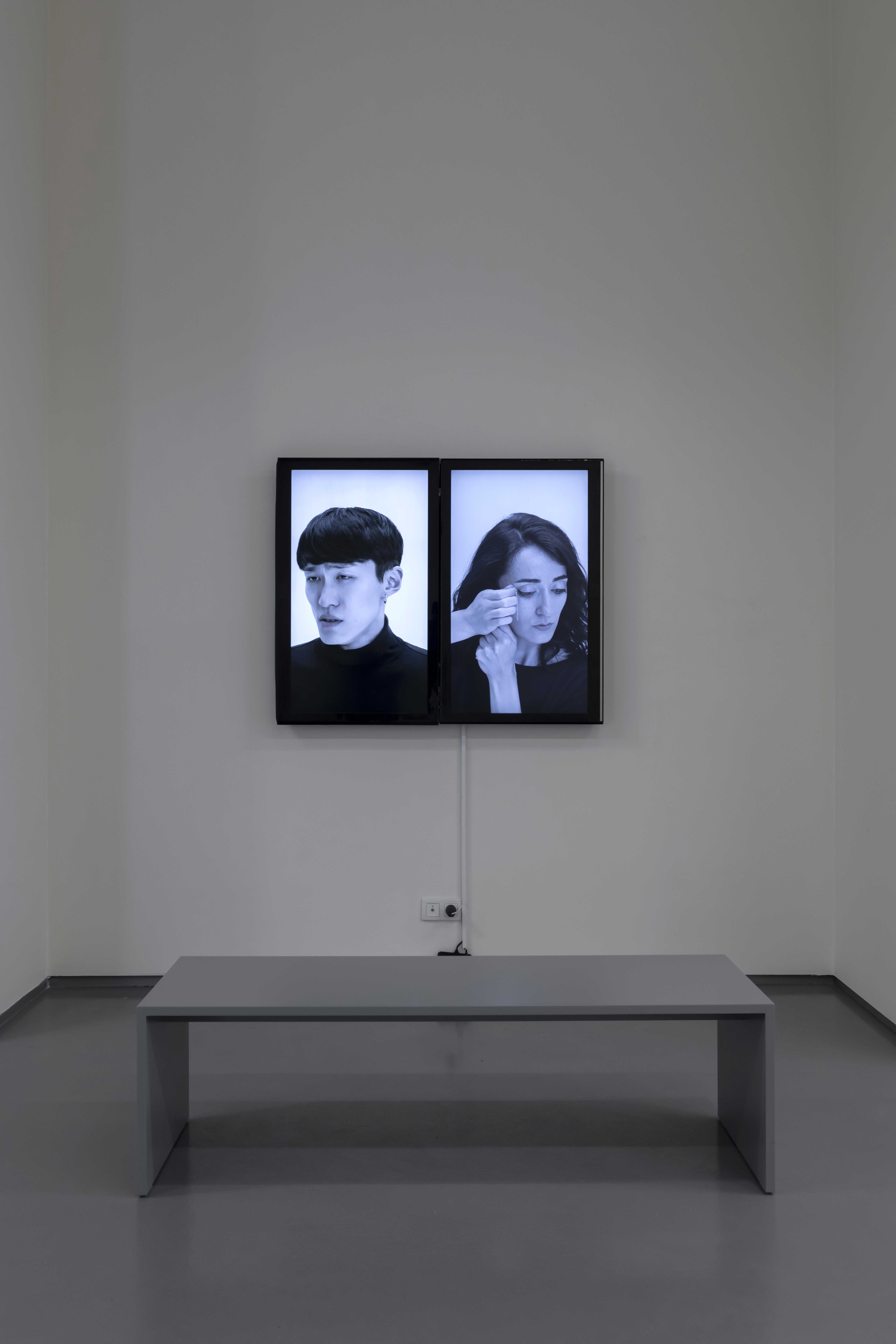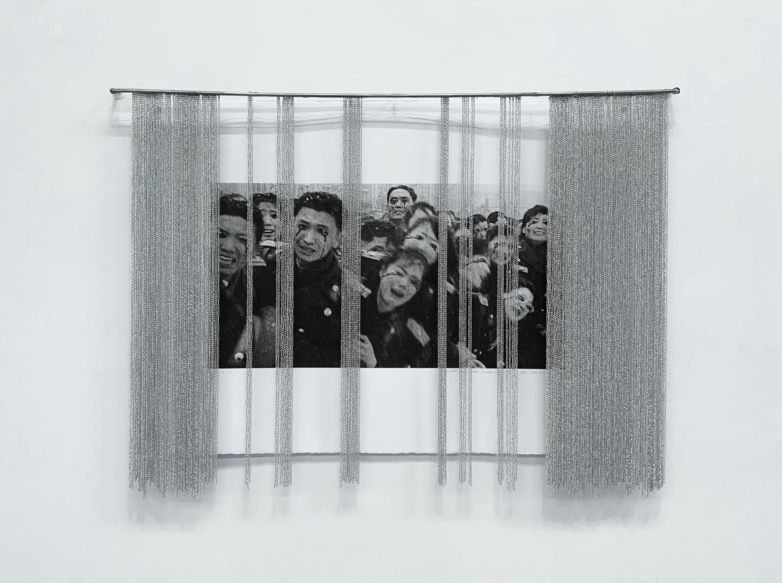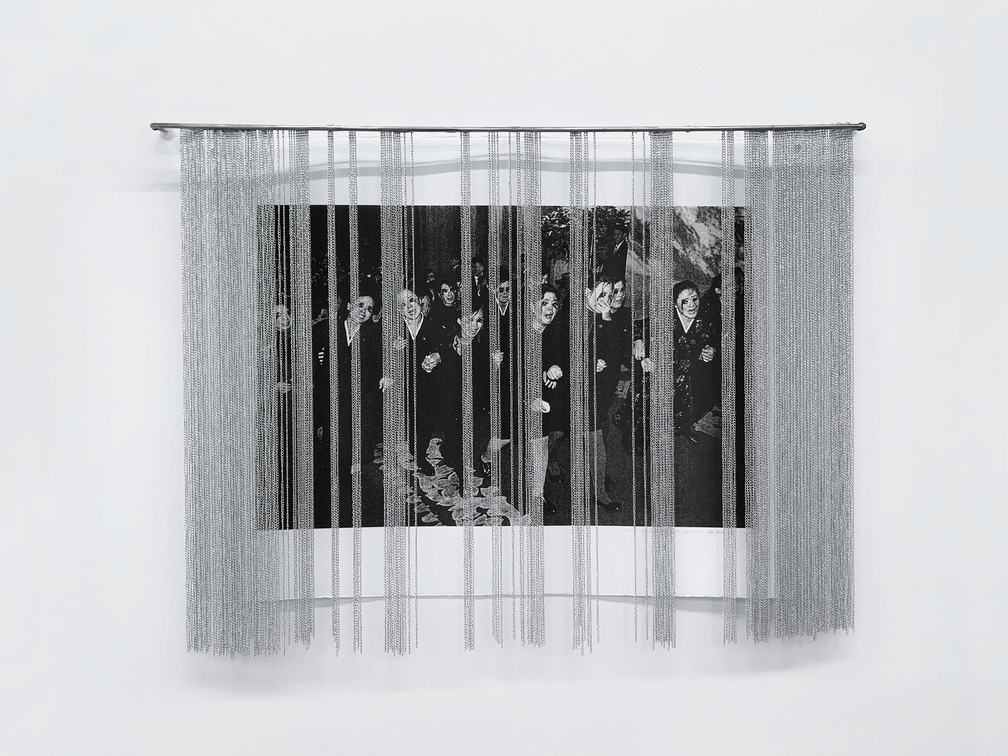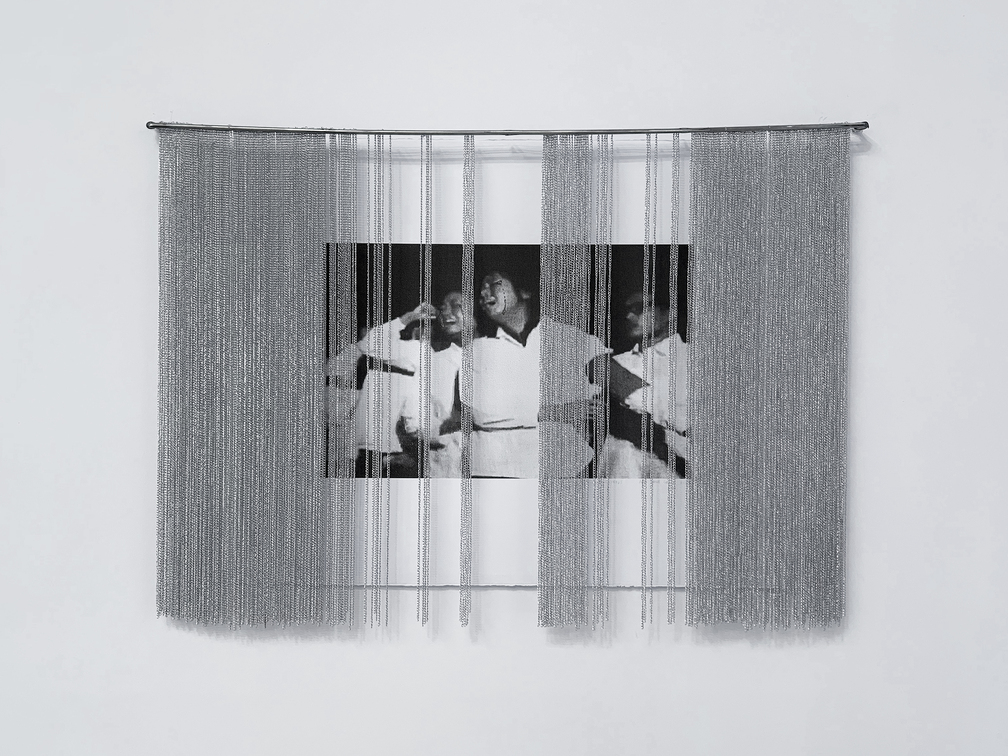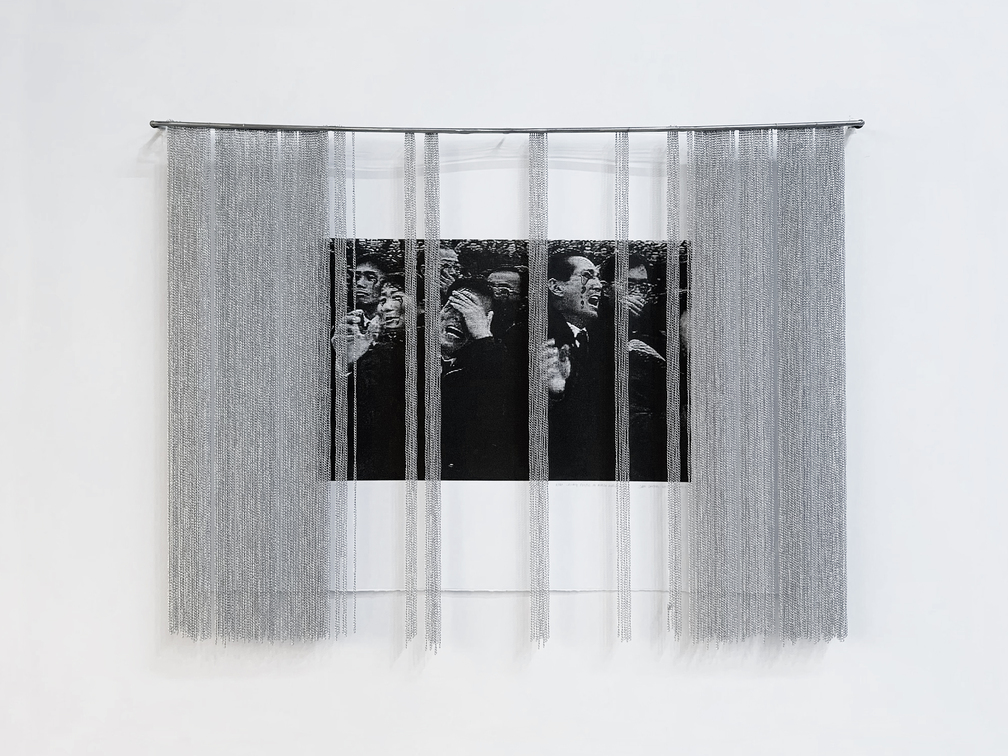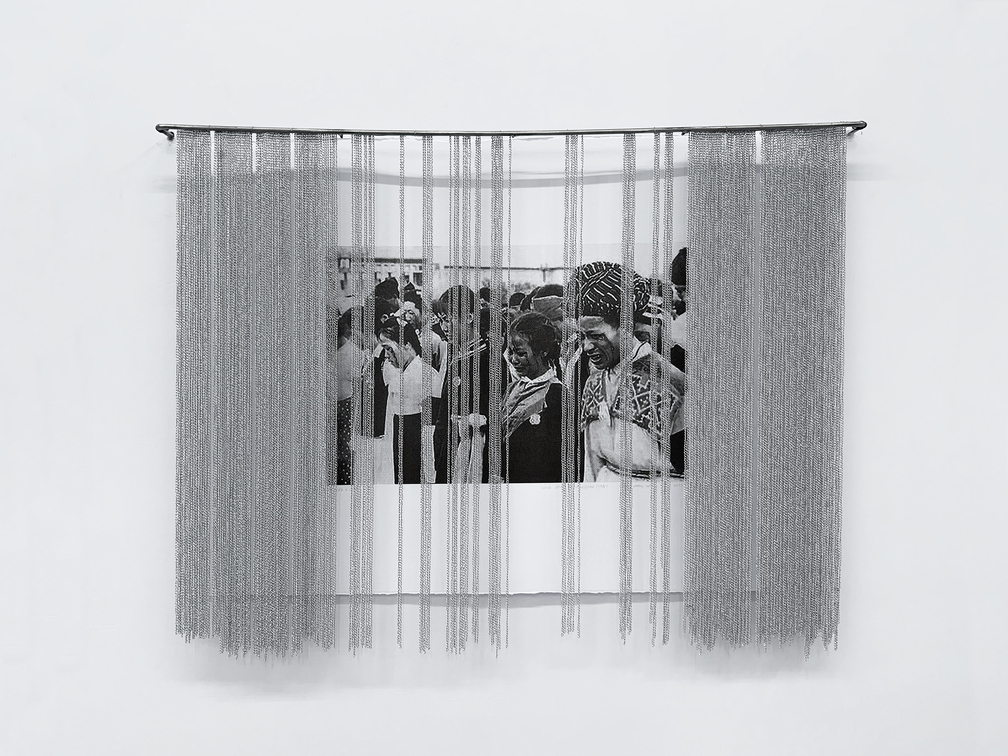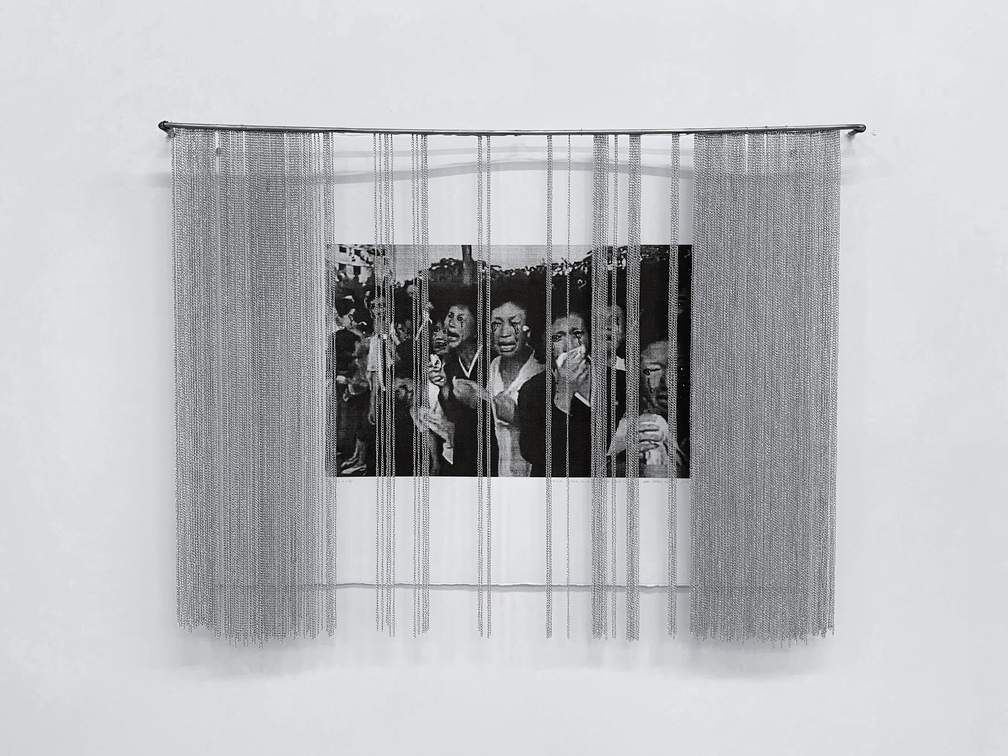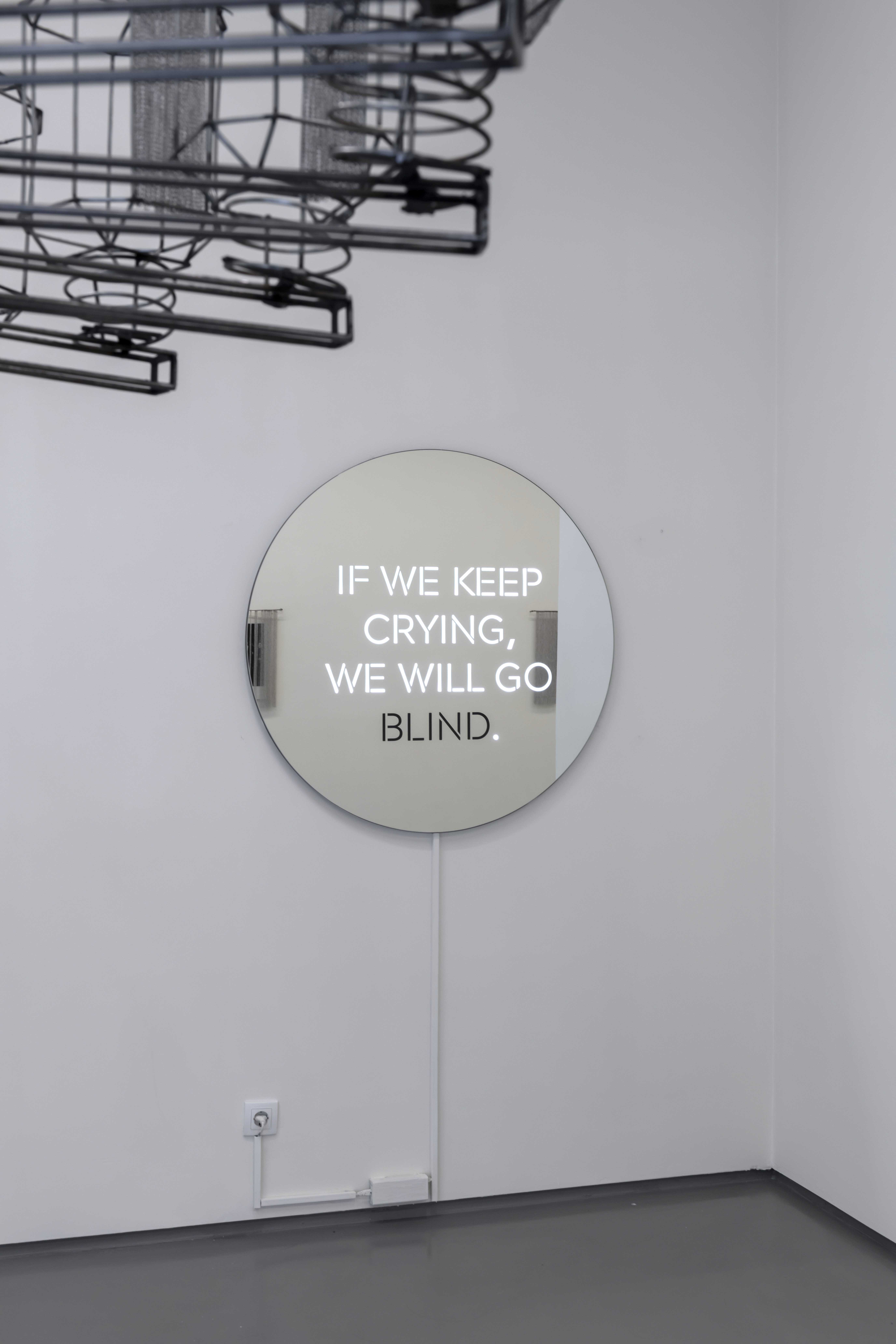Pressemitteilung - If we keep crying, we will go blind
17/05/2022 - 30/07/2022
Zilberman Istanbul is pleased to present Isaac Chong Wai’s third solo exhibition If we keep crying, we will go blind. in the new venue, Zilberman Selected at Piyalepaşa from May 17 to July 30, 2022. The solo presentation features an entirely new body of work, including a large-scale installation, a 2-channel video, a series of silk prints, a lightbox, and a performance. The opening will take place on May 17 at 5:00 p.m. and the performance Controllable/ Uncontrollable Tears (2022) at 6:00 p.m. on the same day.
The conceptual, political, and performative qualities of Isaac Chong Wai’s practice are incorporated by an interdisciplinary approach, processing the exigency of societal shifts and global phenomena. His subtle, poetic, and yet critical works infiltrate the systems of meanings, inviting viewers to reexamine his edited representations of the body, powerlessness, violence, collectivism, leaderlessness, and mourning—among other themes.
In response to the transnational grief of our contemporary reality, Chong points at the urgency of collective mourning and scrutinizes the performativity of sorrow. In his previous solo exhibition Leaderless (2021) in Istanbul, Chong envisioned a future without leaders by challenging us to construct a world where centralism lost its validity. In his current exhibition, the artist delves into the death of leaders and the instrumentalized personal feelings of those in mourning, revolving around the topics of controlled emotions, state funerals, and public mourning. If we keep crying, we will go blind., as an advice to prevent us from disregarding what forces us to cry, addresses the hazard of self-blinding when individual expression of grief is politicized.
Chong’s motive to bring public space into the gallery is embodied by his large-scale installation Crying Streetlight (2022) in the heart of the exhibition. The hollow metal street lamps “cry”—as conceptualized by the artist—and evoke the perceptions of emptiness and transparency, referencing the public lights in the squares of the mausoleums in Tiananmen in Beijing, China, and the Kumsusan Palace of the Sun in Pyongyang, North Korea. Standing as silent witnesses of historical events and public mournings for historical figures such as Kim Il-Sung, Kim Jong-Il, and Mao Zedong, the lamps are incapable of weeping for the public or the deceased. Conjuring up a crying street lamp, Chong affixes cable chain necklaces onto the installation in which every delicate ring of the chain resembles a teardrop. As if the chains attempt to hold and trace every single drop of tears that evaporates in time leaving no mark behind, the contours of the “tears” remerge on the structure of the monumental lamps.
In the colossal funerals of totalitarian leaders, numerous people manifested patriotism through the act of mourning: weeping, wailing, screaming, and hitting the ground. Hysterical demonstrations of grievances in the funerals contagiously spread among mourners captured by international media for staging the mythmaking of grief, meticulously narrated by the state. Pondering the fine line between the dramatic and the over-exaggeration in his series of silk prints, Chong drops artificial tears on the faces of the mourners by using retrieved images from the internet. He prints their excessive expressions and the animated-like tears on paper, partially veiled by a floating curtain made of cable chain. The mix of explicit artificial tears and crying faces, being simultaneously personal and impersonal, struggles between the exhaustion of emotional labor and the emotions of the state. Since it is impossible to verify the authenticity of the tears, Chong rather takes an interest in the representations of grief and the rupture among narratives, expressions, and one’s states of mind and titles the work Crying People (2022), instead of “mourning people.”
The cable chain, artificial tears, crying, and grief, which appear as the prominent parts of the exhibition, come together in the two-channel video Controllable/ Uncontrollable Tears (2022). The double screens, installed vertically, juxtapose comparable expressions: crying unemotionally, sobbing without tears, or wailing with eye drops, along with the decorative chains descending bit by bit from the eyes just as though a passage is paved for the teardrops. The segmented emotions embodied by acting, feelings, thoughts, and expressions infer the dialectical sorrow between the controllable and uncontrollable and the liminal state of performing and authenticity. Corresponding to the video, Chong developed a performance staging the invariable expressions in repetition and imitations of emotions among the performers. In the live performance, the performers enact their lamentation and gaze at the audience where genuine and fictitious feelings contend with personal experiences in everyone’s mind.
A mirror lightbox with illuminated words If we keep crying, we will go blind., except the word “blind” painted in black, is installed at the eye level, interrupting the passerby’s reflections and questioning the individuals in collective mourning and the contingency of losing one’s sight.
Reevaluating the historical events and reading them from their unseen sides in the exhibition, the public streetlights and nameless people push their limits to overplay the sorrow that the authorities demand. The trajectory of history alters with emotions, while the undefinable spheres of thoughts and expressions might shift us away from collective blindness.
Isaac Chong Wai (b. 1990) is an artist working between Berlin and Hong Kong. Chong graduated from the Academy of Visual Arts at Hong Kong Baptist University with a BA in Visual Arts and Bauhaus-Universität in Weimar, Germany, with a MFA in Public Art and New Artistic Strategies. His recent solo exhibitions include: Leaderless (Bilsart, Istanbul, 2021), What is the future in the past? And what is the past in the future? (Zilberman, Berlin, 2019), I Made a Boat in Prison (Zilberman Projects, Istanbul, 2019), Is the World Your Friend? (Blindspot Gallery, Hong Kong, 2019), An Artistic Archive of Borders (Kunstraum München, Munich, Germany, 2018), Future of the Past – Past of the Future (Goethe Institut Hong Kong, Hong Kong, 2018), What is the future in the past? And what is the past in the future? (Bauhaus Museum, Weimar, Germany, 2016). His selected group exhibitions include: Identity Not Proven, New Acquisitions for the Federal Art Collection (Bundeskunsthalle Bonn, Bonn, Germany, 2022), Studio Bosphorus, 10th Anniversary of Kulturakademie Tarabya (Kunstraum Kreuzberg/ Bethanien, Berlin, Germany, 2021), Looking for Another Family (National Museum of Modern and Contemporary Art, Seoul, 2020), HUMAN CAPITAL (Innsbruck Biennial, Innsbruck, 2020), Ordinary Heroes: Made in Hong Kong (IFFR, Rotterdam, 2020), Living Sound—Expanding the extramusical (Museum of Contemporary Art (MOCA), Taipei, Taiwan, 2019), The Racing Will Continue, The Dancing Will Stay (Guangdong Times Museum, Guangzhou, China, 2019), M+ Live Art Audience As Performer (M+ Museum, Hong Kong, 2018), The D-Tale: Video Art from the Pearl River Delta (Times Art Center, Berlin, Germany, 2018), KOTODAMA (Para Site, Hong Kong, 2018), Forecast Forum (Haus der Kulturen der Welt, Berlin, Germany, 2017), Moscow International Biennale for Young Art, A Time for Dreams (National Centre for Contemporary Arts (NCCA), Moscow Museum of Modern Art (MMOMA) and Museum of Moscow, Moscow, Russia, 2014).
Please contact T. Melis Golar at melis@zilbermangallery.com for further information on the show.
Artist Pages
- Isaac Chong Wai


